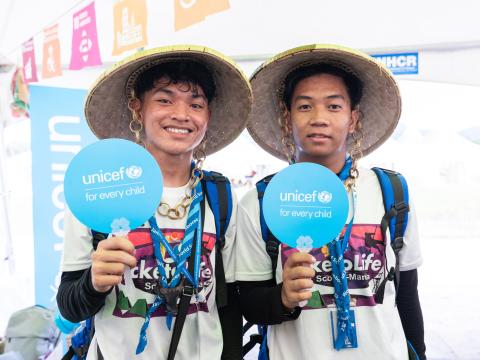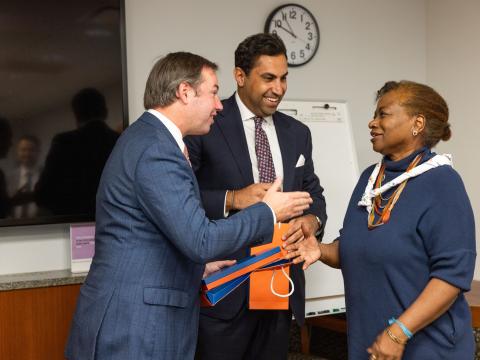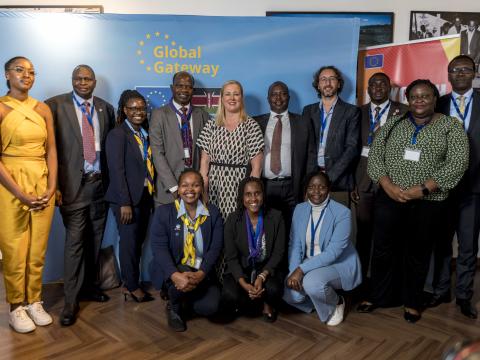World Scouting and UNICEF’s Generation Unlimited investing in environmental education and youth-led climate action
Young people did not create the climate emergency, yet its impacts are shaping their daily realities and jeopardising their futures. Across the world, youth are stepping up to confront this challenge, equipped with education, skills, and platforms to lead a just and green transition.
Through Generation Unlimited’s Green Rising initiative, two of the world's most recognised youth-focused organisations - World Scouting and UNICEF - are combining their reach and expertise to empower Scouts to take bold climate action.
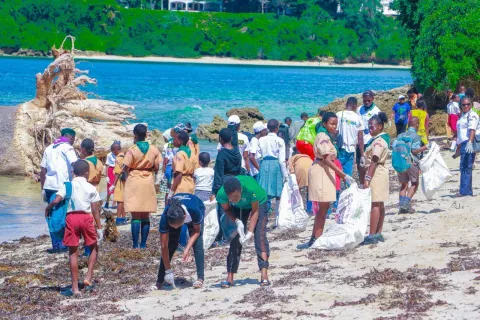
In Algeria, Barbados, Ecuador, Ghana, India, Kenya, North Macedonia and the Philippines, the “Green Skills for Youth-led Climate Action around Green Rising” project enables young people to protect the planet, promote sustainability, and bring innovative solutions to their communities.
Youth-led workshops and education sessions on climate and sustainability are equipping participants with the knowledge, opportunities, and confidence they need to drive meaningful change. Additionally, these scouts are engaging in local actions, from restoring land and creating green spaces in their contexts to removing debris from marine life to planting trees and farming sustainable produce. These efforts are helping young people turn concern for the planet into concrete, hands-on actions to protect their communities and mitigate the devastating effects of climate change.
Rooted in World Scouting’s Champions for Nature Challenge (part of the EarthTribe initiative), the project mobilises young people as agents of change, coordinating local responses to environmental challenges. Through this partnership, UNICEF’s Generation Unlimited is helping scale the Champions for Nature Challenge by embedding green skills into youth programmes at the national level and supporting even more National Scout Organizations.
Between December 2024 and June 2025, the project’s first phase focused on building the capacity of young people and leaders through five virtual regional and eight national in-person training sessions - reaching over 360 participants. With support from World Scouting’s staff and consultants, the sessions explored key topics, including climate trends, green skills, green jobs shaping the future of work, advocacy and storytelling, the Sustainable Development Goals, and World Scouting’s environmental agenda. Practical components, such as building conical gardens for sustainable farming, ensure participants can translate their learning into action.
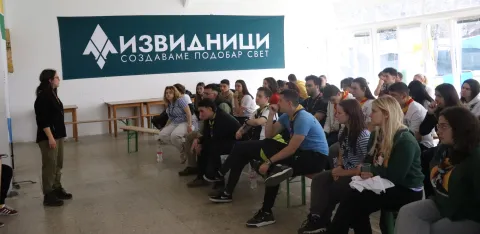
Equipped with these new skills, young people are ready to lead community actions to address the climate crisis long after the project’s end.
In Kenya, Scouts have removed over 2,000 kilograms of debris from beaches in Mombasa, Kilifi, and Kwale counties, and planted over 3,000 trees across five other counties. In Ghana, Scouts and community members have collected 350 kilograms of waste along a 2.5-kilometre stretch of coastline and planted crops at a five-acre farm focused on sustainably farmed produce. Other initiatives include partnering with local stakeholders to create green spaces, recycling and reusing waste, and conducting community sessions on responsible consumption - all demonstrating clear ownership and long-term vision for sustainability.
As the project moves towards its final phase in December 2025, World Scouting continues to amplify youth voices in global climate conversations. By sharing their stories of impact through platforms like the Scouts for SDGs hub, Scouts are encouraging collective action and strong partnerships, inspiring more young people to develop green skills and take part in climate action.
The tailored integration of the Champions for Nature Challenge into national youth programmes ensures these efforts will have a lasting impact, empowering young people to lead by example as environmentally conscious leaders committed to building a sustainable world for all.
